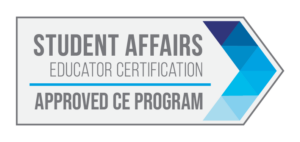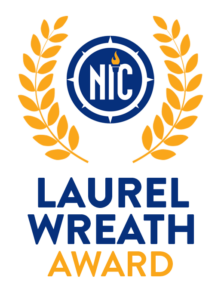
in collaboration with the Piazza Center
June 24-25, 2025
University of Denver
Denver, Colorado

Hazing Prevention Network has been approved by the Higher Education Consortium for Student Affairs Certification to provide CE credit for Certified Student Affairs Educators (CSAEd™). Programs that qualify for CE credit in this program are clearly identified. Hazing Prevention Network is solely responsible for all aspects of this program.

Hazing Prevention Institute curriculum developed for the Hazing Prevention Network by Emily Perlow, Ph.D., in collaboration with the Piazza Center through funding from the Max Gruver Foundation and Phi Delta Theta Fraternity.
Registration
Individual and group registration is now open! If you are registering a group of four (4) or more individuals, email Todd Shelton for a discount code BEFORE starting registration. If you have questions, contact Todd Shelton.
Early bird rate: $499 (Jan through March 30)
Regular Registration: $624 (April 1 through May 30)
Late Registration: $749 (June 1 through June 13)
REGISTRATION IS NOW CLOSED FOR 2025.
 Winner of the North American Interfraternity Conference 2024 Laurel Wreath Award for unique programs and initiatives influencing the fraternity community and greater world.
Winner of the North American Interfraternity Conference 2024 Laurel Wreath Award for unique programs and initiatives influencing the fraternity community and greater world.
Who should attend: Professionals/advisors and graduate students across all student activities & organizations including athletics, fraternity & sorority life, recreation/club sports, performing arts, etc.
Are your prevention efforts ready for the Stop Campus Hazing Act (SCHA)?
The Institute’s research-informed curriculum, developed in partnership with the Piazza Center, aims to address individual, organizational, and community-level hazing motivators, apply prevention concepts to your campus or organization, and identify strategies to disrupt hazing cultures. Participants will also learn change management strategies and leave with specific steps to enhance your comprehensive hazing reduction program.

2025 Institute Location
University of Denver
Community Commons
2055 E Evans Ave
Denver CO 80210
Institute Format
This institute-style program will employ the Piazza Center Horizontal Hazing Model to identify the motivators and detractors for individual, organizational, and community participation in hazing. The program will scaffold learning through large group sessions and small group working sessions where participants apply research-informed concepts to the real-world environment. Participants will depart the institute with a working plan for implementing hazing intervention on their campus or in their organization.
Outcomes
As a result of participating in the Hazing Prevention Institute:
- Participants will describe individual, organizational, and community level hazing motivators and barriers to hazing reduction.
- Participants will describe three ways the Piazza Horizontal Hazing Model can be applied to their campus/organization.
- Participants will apply the four components of situational strength to their campus/organization and will identify four strategies to disrupt situational strength.
- Participants will identify four change management strategies they can employ in their hazing reduction efforts.
- Participants will create a plan for enacting a comprehensive hazing prevention program. Three months post-institute, participants will report having taken steps outlined on their plan.
Keynote Conversations
We are excited to welcome Dr. Brian Gearity from University of Denver and Rasheed Cromwell from The Harbor Institute to join us during this year’s Institute.
 The Ted Lasso Effect: Stamping Out Hazing in Athletics and Building Strong Team Culture
The Ted Lasso Effect: Stamping Out Hazing in Athletics and Building Strong Team Culture
Dr. Brian Gearity (“Dr. G”)
While Ted Lasso is a (wonderful) fictional character, there’s a lot to be learned from his example. Brian Gearity from DU’s Graduate School of Professional Psychology, where he runs the Master of Sport Coaching program, joins us to discuss the finer points of coaching, culture and team building in a world where hazing scandals are still a regular occurrence.
 Discretion: Hazing, Pledging and Intake in D9 Organizations
Discretion: Hazing, Pledging and Intake in D9 Organizations
Rasheed Cromwell, Esq.
Cross-pledging, burning sands, pledge lines, paper vs. made – how familiar are you with these terms? Black Greek Letter Organizations (BGLOs or Divine Nine (D9)) are rich with history, tradition and culture. In 2025 and beyond how do we balance those customs with rapidly changing social media, streaming and artificial intelligence (AI) that cloud an already challenging landscape?
Program Schedule
Download PDF of schedule here.
Cancellation Policy
Once you have completed and submitted the Hazing Prevention Institute registration form, you are considered registered regardless of payment status. Cancellations made prior to April 30, 2025, will result in a refund of all but a $50 processing fee. Cancellations made between May 1, 2025, and June 6, 2025, will result in a refund of 50% less a $50 processing fee. Cancellations made after June 6, 2025, are non-refundable.
Questions?
If you have questions about the Hazing Prevention Institute, contact Todd Shelton, Executive Director.
Hotel
The Hazing Prevention Institute has a hotel block ($169/night) available at the Courtyard Denver Cherry Creek just off the campus of University of Denver. The deadline for reservations in block is June 9 (or when the block is full).
(Complimentary parking and wi-fi included)
Courtyard Denver Cherry Creek
1475 S. Colorado Blvd Denver
Colorado, USA, 80222
Scholarships available
2025 DEADLINE: March 31,2025
Harrison Kowiak tragically died as a result of hazing in college. Harrison’s family offer the Harrison Kowiak Annual Scholarship for individual(s) interested in hazing prevention to attend the Hazing Prevention Institute. The scholarship includes two nights hotel accommodations, a travel stipend up to $500 and the event registration fee.
Facilitators
Lead Facilitator:
 Dr. Emily Perlow is the Assistant Vice President and Dean of Students at Worcester Polytechnic Institute, a Lecturer in the Counselor Education and Family Therapy Program at Central Connecticut State University, and is a Research Affiliate in the Center for Student Success Research at the University of Massachusetts-Amherst. She has a Ph.D. in Educational Policy from the University of Massachusetts-Amherst and an MA in College Student Personnel from Bowling Green State University. (Bio)
Dr. Emily Perlow is the Assistant Vice President and Dean of Students at Worcester Polytechnic Institute, a Lecturer in the Counselor Education and Family Therapy Program at Central Connecticut State University, and is a Research Affiliate in the Center for Student Success Research at the University of Massachusetts-Amherst. She has a Ph.D. in Educational Policy from the University of Massachusetts-Amherst and an MA in College Student Personnel from Bowling Green State University. (Bio)
Small Group Facilitators:
(Bios available here)


